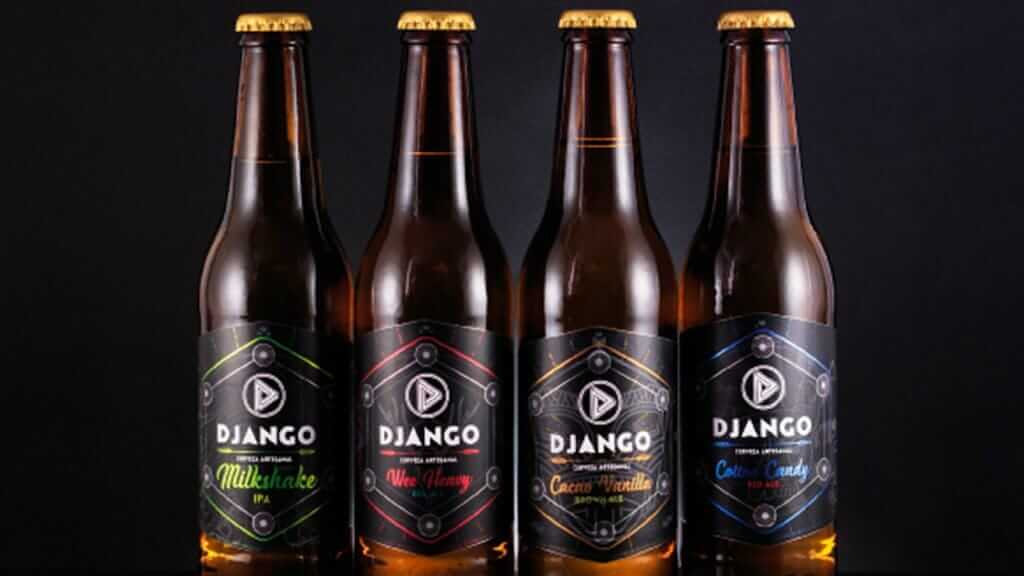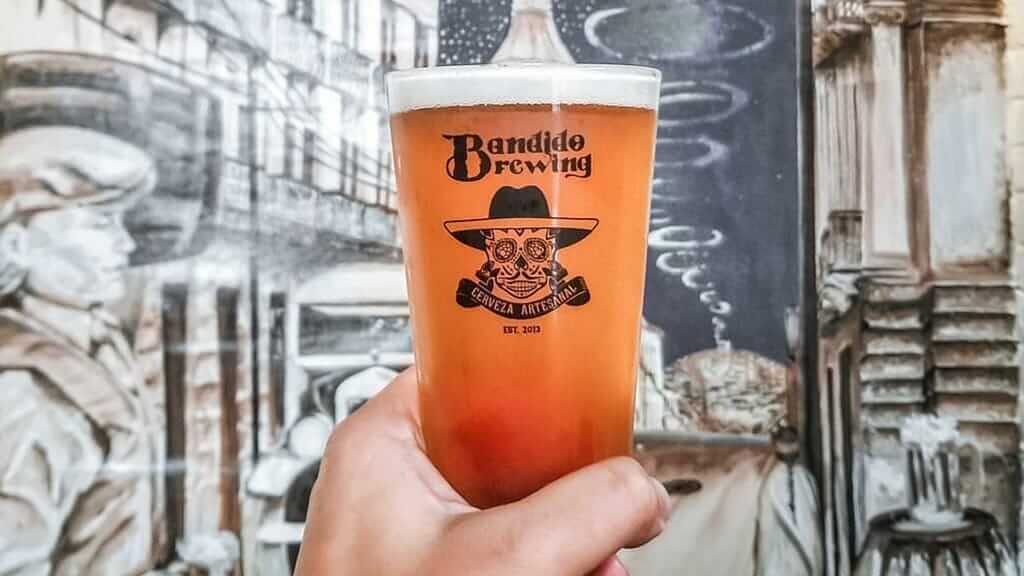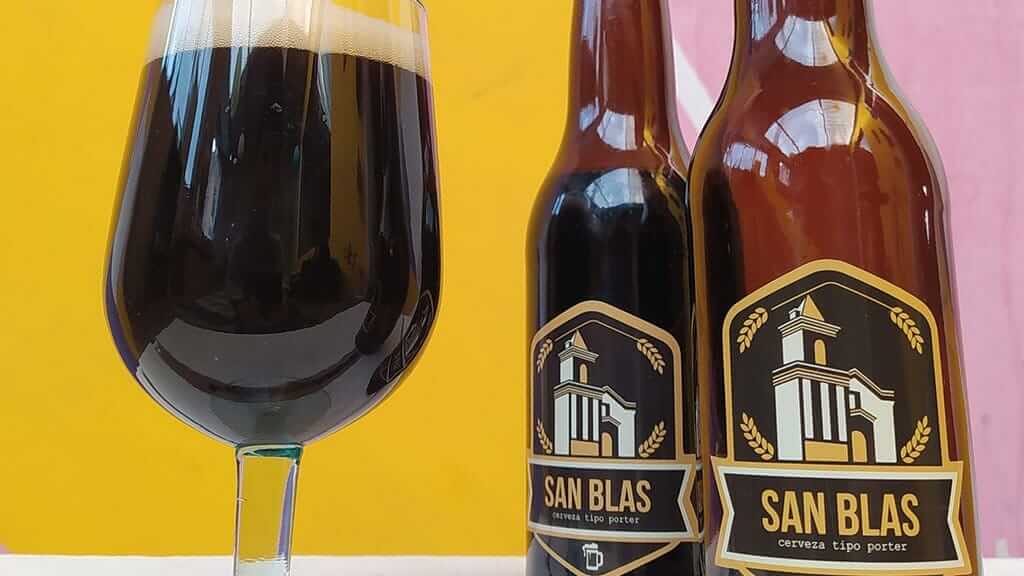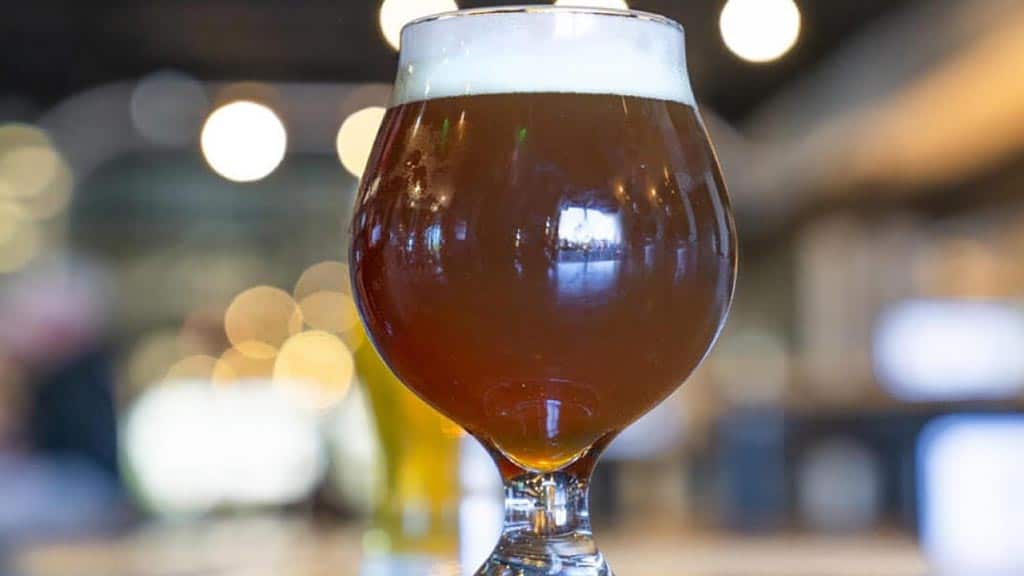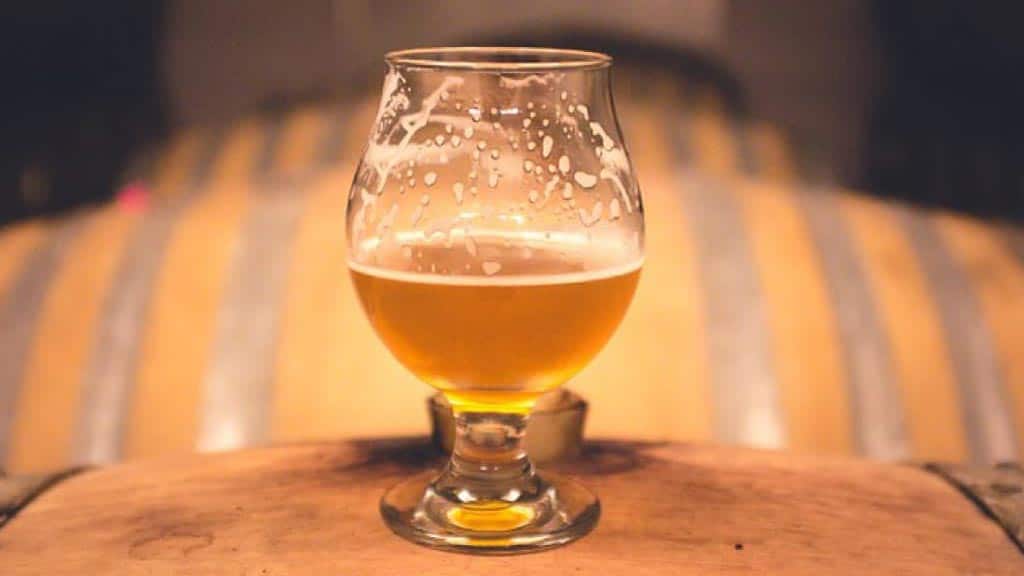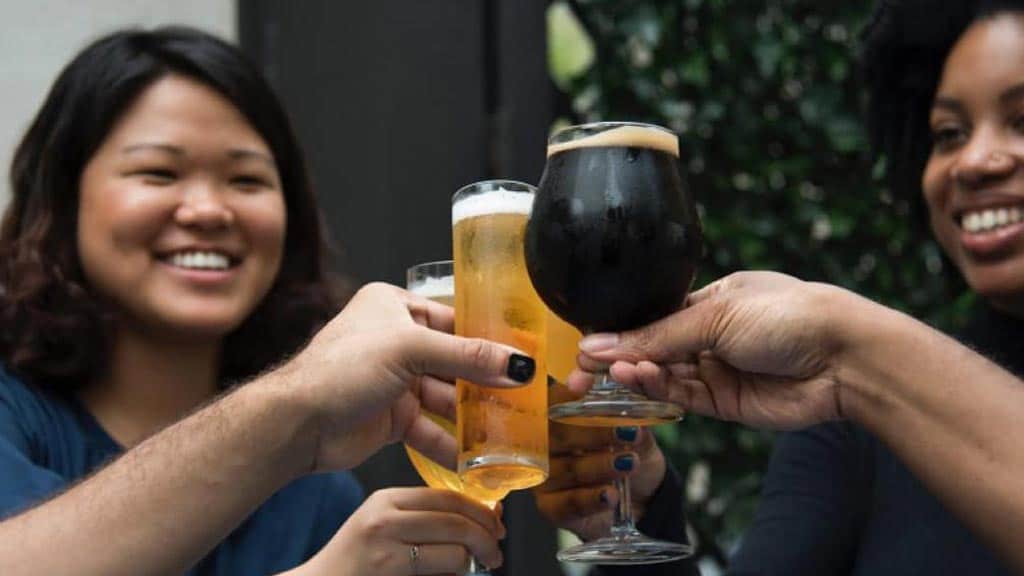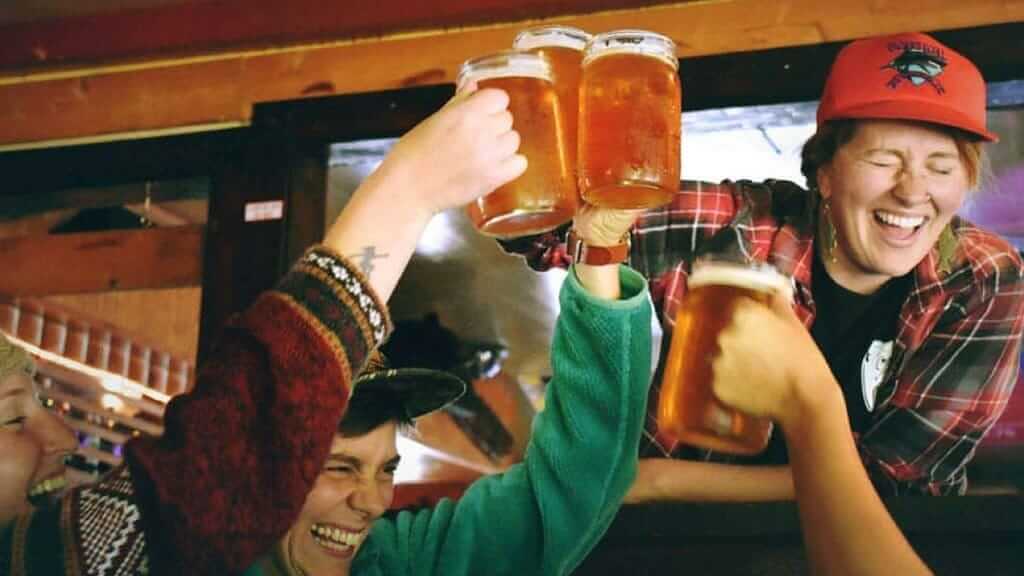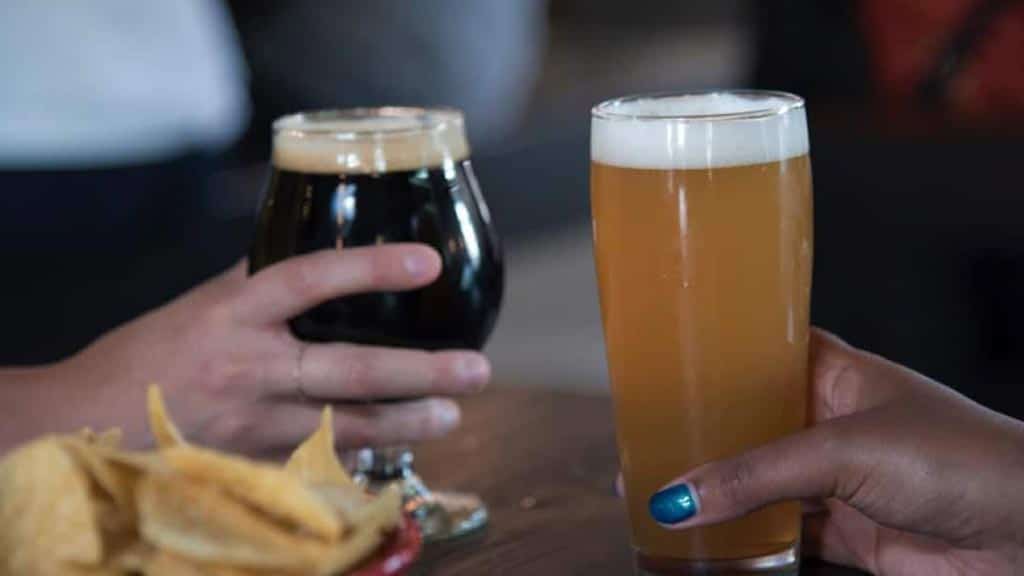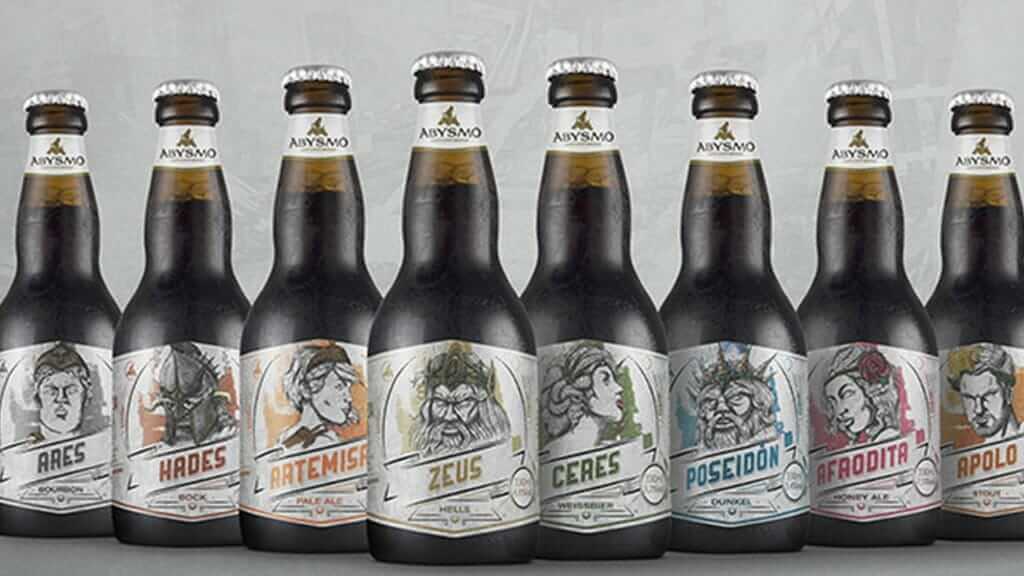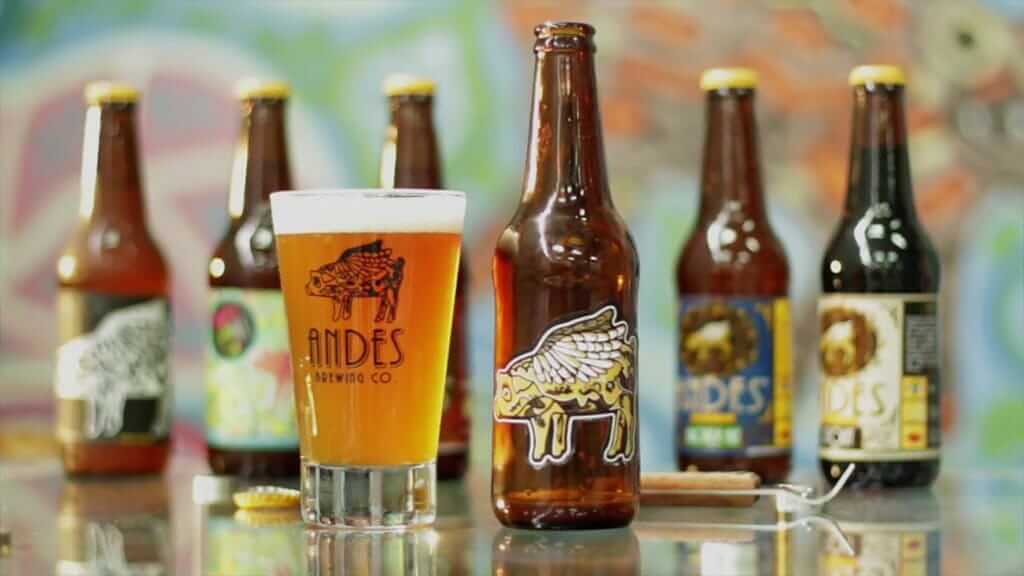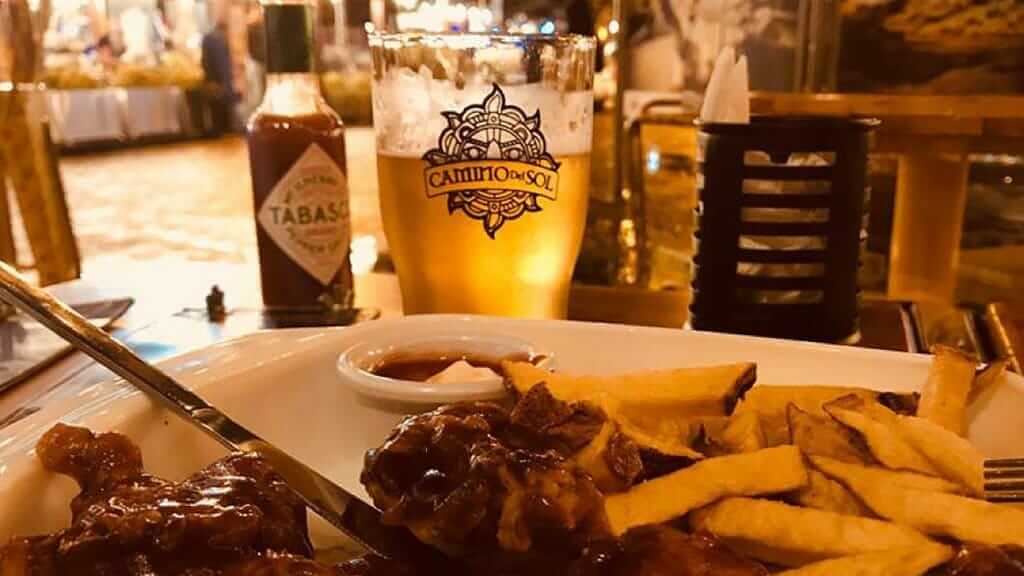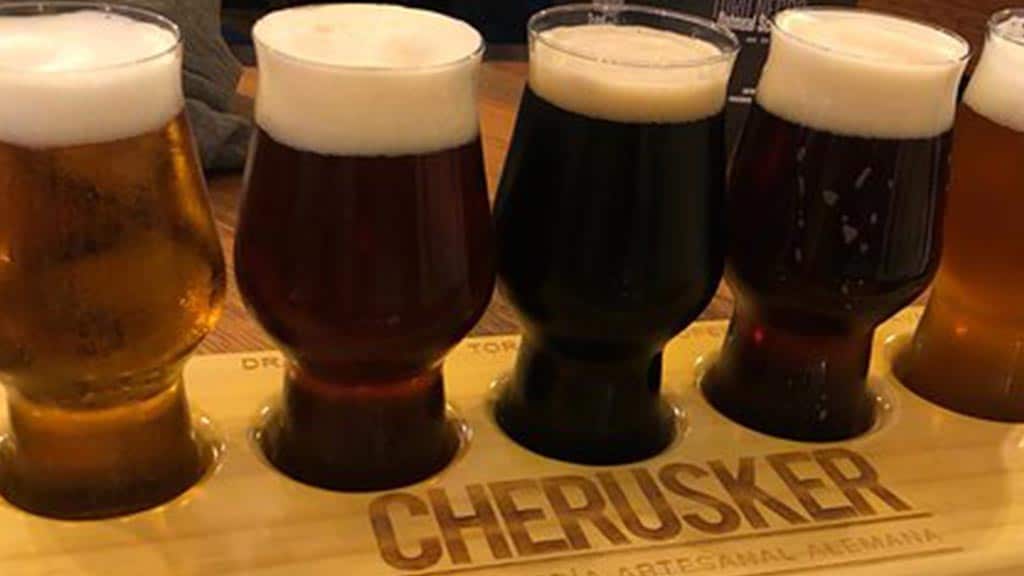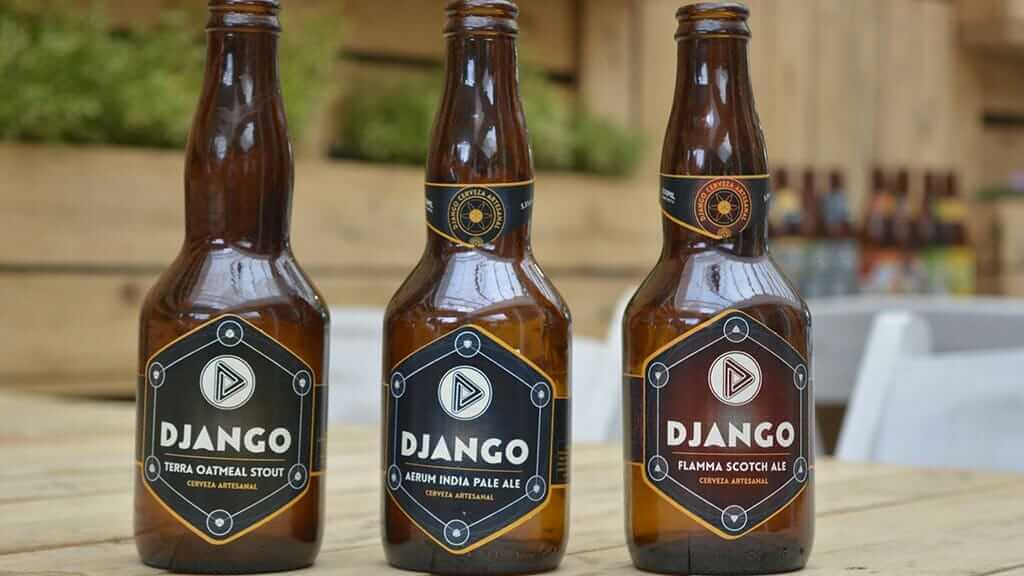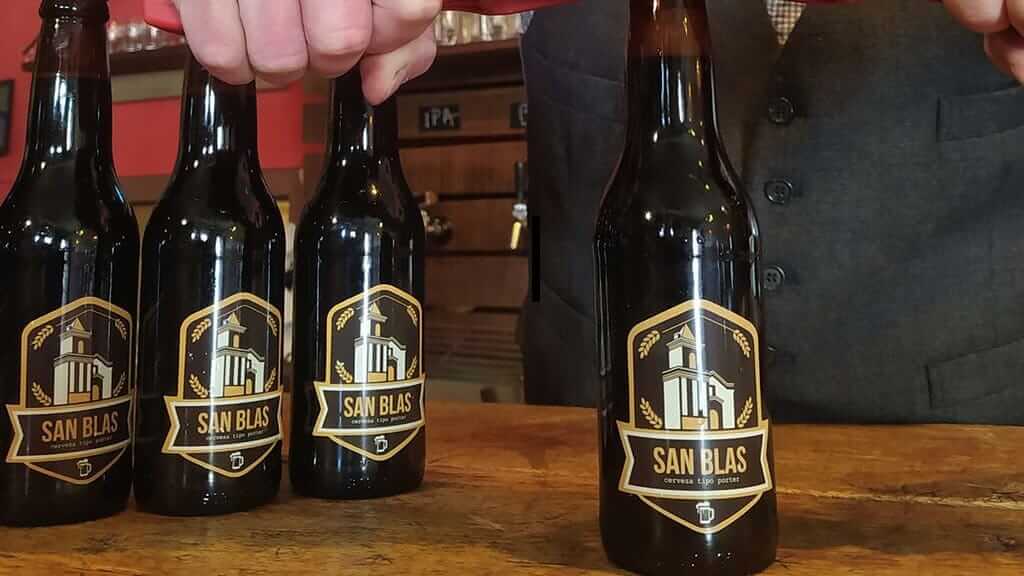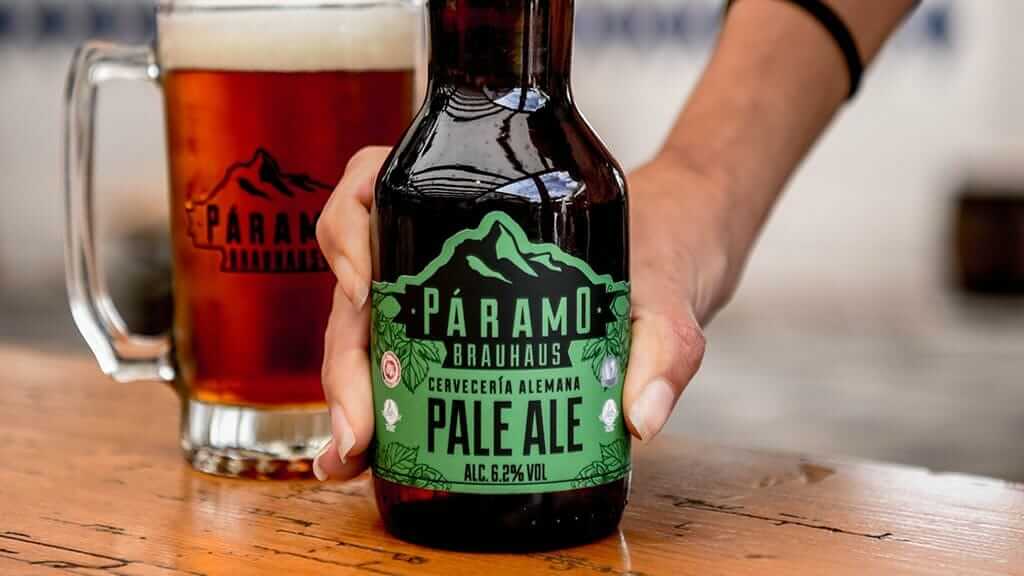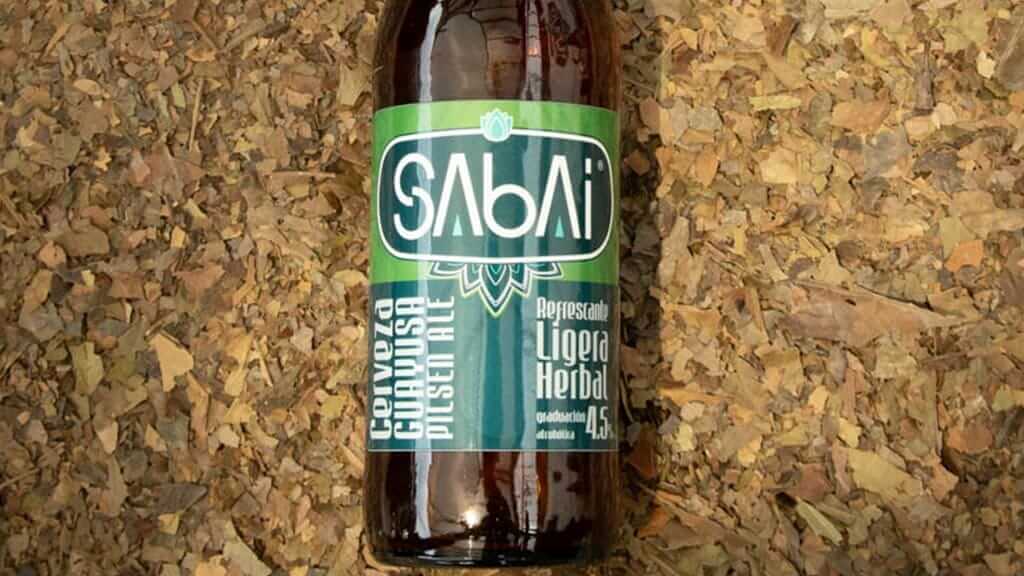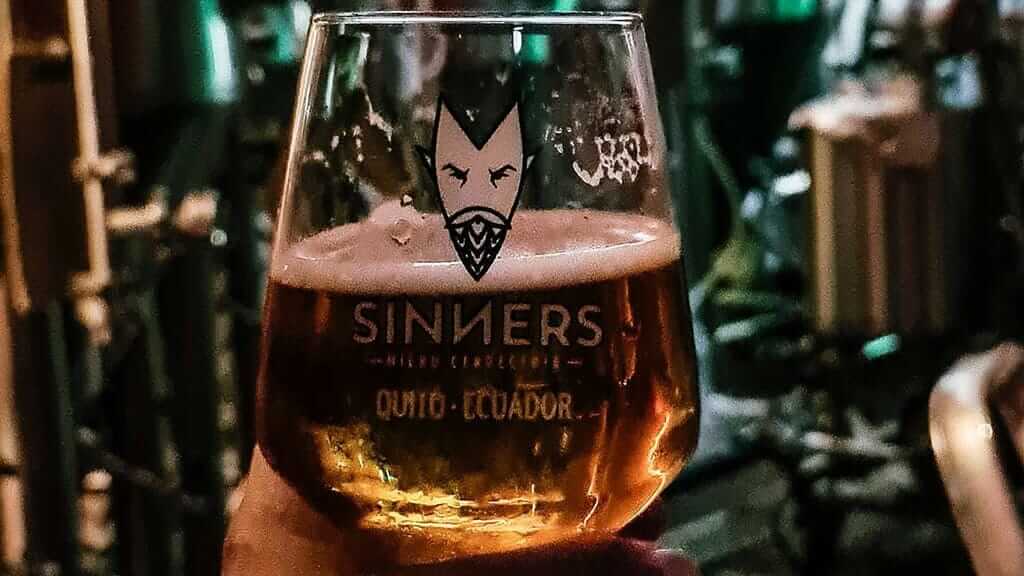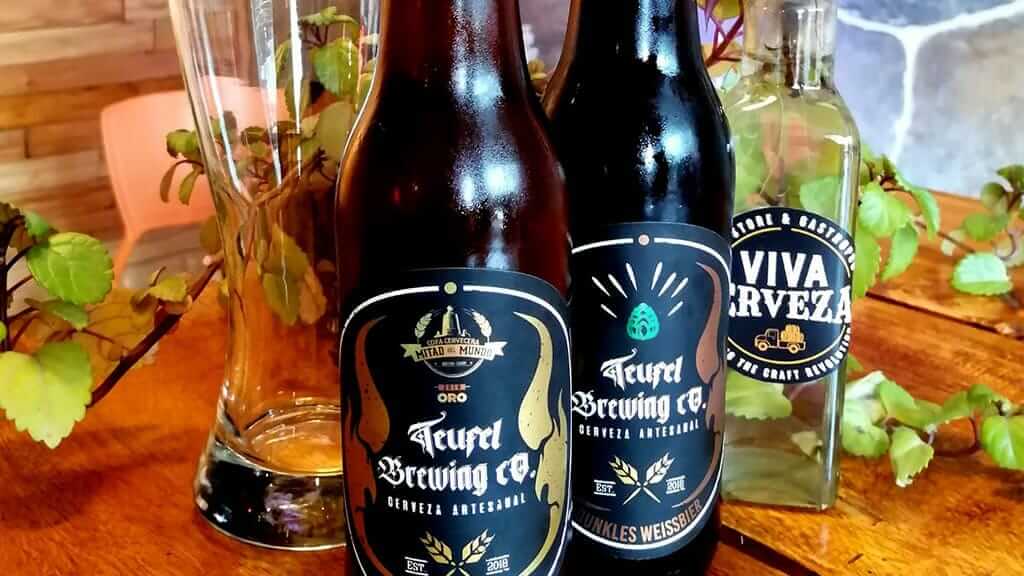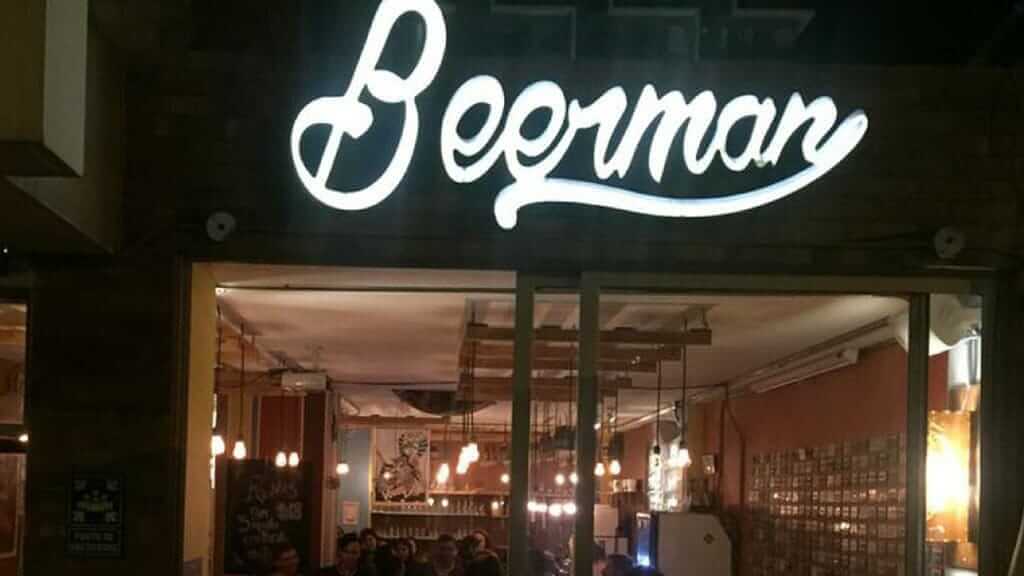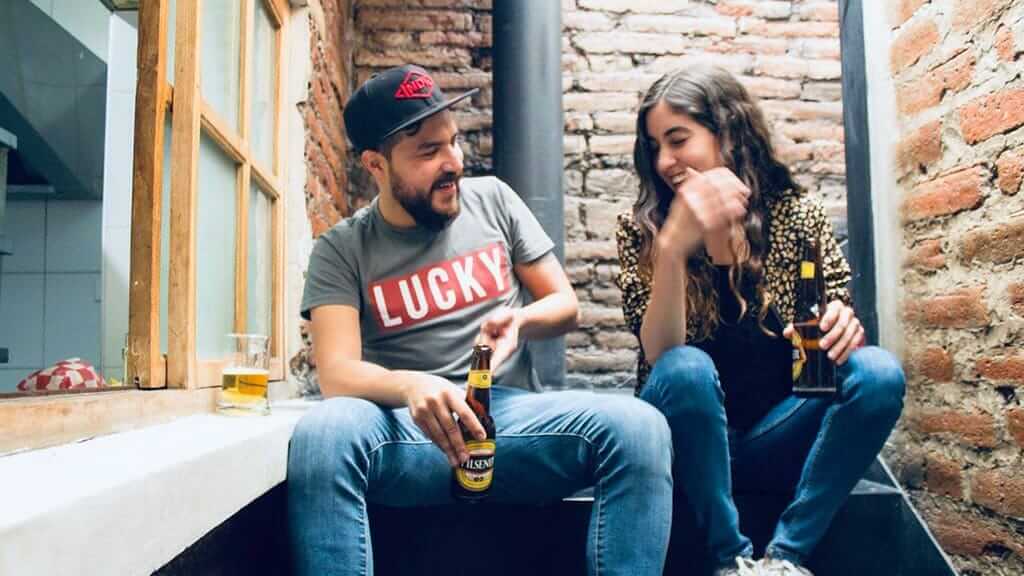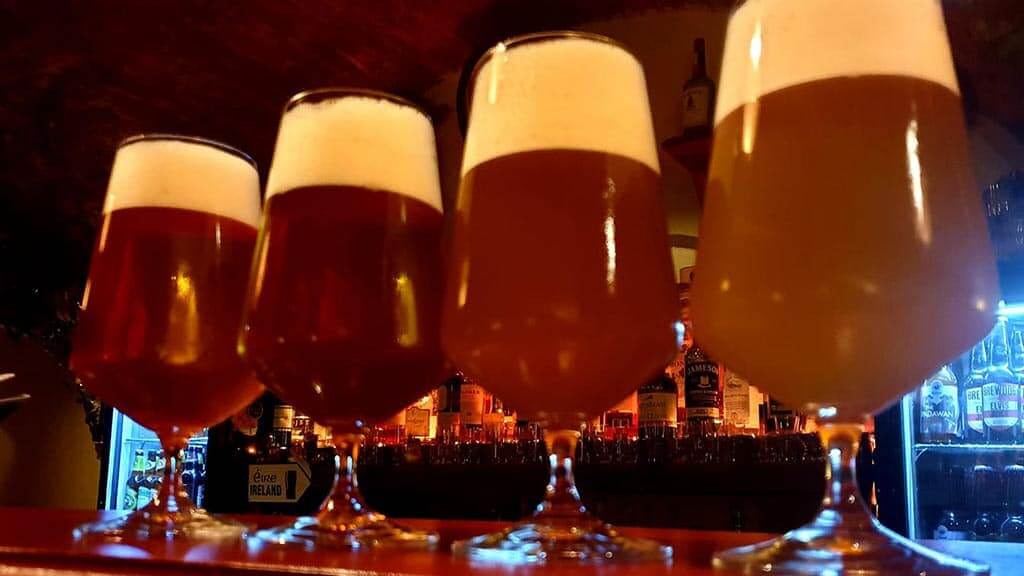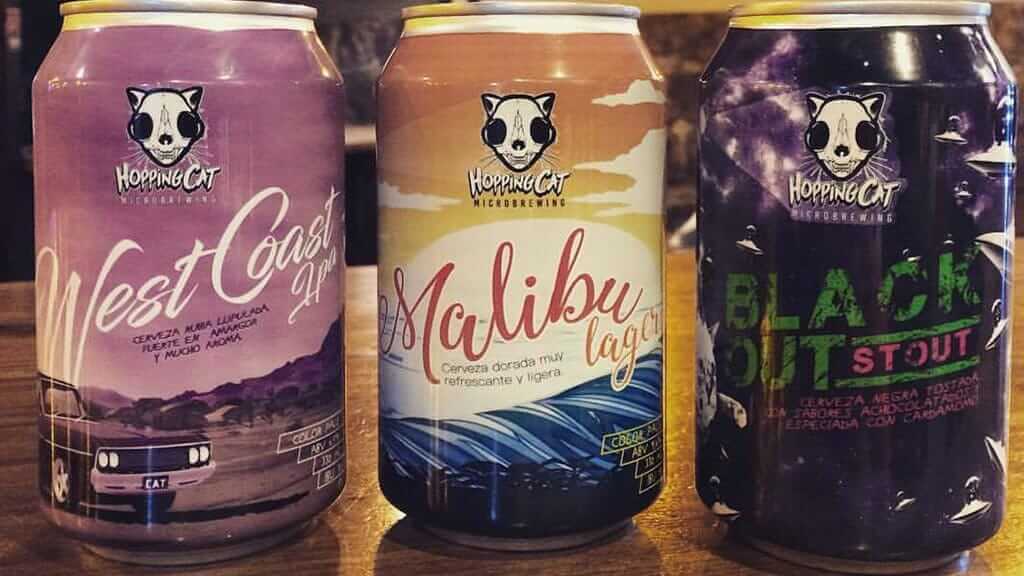The Story of Craft Beer in Ecuador
The sudsy story of craft beer in Ecuador and Quito is a tall tale with lot of characters and plots. The nation’s capital is the place where people from all over the country and the world come to make a fresh start or pass on through. Ecuador beer has long been a bugbear for Quito’s ex-pat community. For years the usual suspects of Ecuadorian Pilsener and Club not only dominated Ecuador’s beer scene, but were often the only choice. How we longed for variety, perhaps an alluring dark beer, or refreshing IPA to bring back memories of home. Then finally and unexpectedly, a decade or so ago, the Ecuador beer transformation began. Ex-pats started to brew their own craft beer, and Ecuadorians loved it. Fast forward today and Quito boasts a thriving craft beer scene, diverse range of beer labels, and atmospheric pubs to happily sup away.
Keep reading for a tall tale of how small, independent brewers took on the beer giants in Ecuador, changing the way the country drinks and the social scene of Quito in the process.
"Hopefully, this train will only gain momentum in Quito until the idea of having a locally-produced craft beer at a neighborhood spot becomes as second nature as grabbing a corporate beer at the corner store."
(Edward Ellis-Founder La Oficina-Home to San Blas Beer)
SECURE YOUR ECUADOR TRAVEL
Get a FREE personalised quote todayEcuador Beer - The Beginning
Making craft beer in Ecuador and Quito is a bit of a trick. Hops are imported by the container and equipment is manufactured by a handful of people who have the expertise to make the machinery.
Twenty years ago, when microbreweries were around every corner in other parts of the world, there wasn’t a market here beyond a scattered group of expat bars that ordered a keg a few times a year. These places catered to diplomats who lived in Ecuador for extended periods of time with a thirst for home.
Today, where there used to be a vacuum for beer lovers visiting from the States and Europe, there are more choices in one block than there are patrons on weeknights in some spots.
So, what changed? It all began back in 2002, when home brewing became a thing in Quito. Fabián Gorostiaga (originally from Buenos Aires) began teaching homebrew courses in the capital, all of which eventually led to the inaugural Ecuador Beer Challenge in 2012. The growing popularity of homebrew led naturally into the birth of Ecuador's craft beer social scene, which in 2021 saw an impressive 75 different brewers competing in the beer challenge. Fabian continues teaching the next generation of budding brewers today, through the Ecuador Beer Academy.
Let's dig deeper into Quito's beer story through some case studies. Bandido Brewing opened its doors casually in the historic center in 2013. Located across from a busy market in a converted chapel, three Americans introduced the first locally-made IPA to the scene, crossing a divide and helping to change the beer culture in Quito.
At the time, five breweries had a small stake in the game in Quito. Ecuador beer production was dominated by the conglomerates – Pilsner and Club ruled the land. Far from being immediately accepted, craft beer took off bit by bit during the first years on the scene.
"Our brewing Project began in 2014 in a little room, brewing for friends and just for fun. As a result, we have built a brewing company between friends out of a strong passion and desire of making beer as our way of living. Now we are striving to be one of the best and most creative beer companies in Ecuador."
(Martin Proaño - Co founder Django Cerveza Artesanal)
Craft breweries in Quito started in dusty, back rooms of bars where the owners would brew during the day and open their doors for business in the evening where they sold the fruits of their labors until the supplies ran out.
"There were three of us in the beginning, and without any employees the days were long and the nights even longer. We brewed in the pub and a typical day consisted of a making a batch of beer in the morning then getting everything ready to open the bar by 4pm, and once the beers started pouring they often didn’t stop until 1am."
(Nathan Keffer-Bandido Brewing)
Clients were won over one pint at a time. Word of mouth is the way things work here, and as people took notice of the new kids in town-more breweries started appearing.
San Blas Beer in the historic center, Paramo Brauhaus and Sabai Beer in the valley of Quito, and Django Beer joined Bandido, Sinners, Cherusker, and Camino Del Sol-some of the early players in Quito.
"We try to maintain our brewpub as vibrant as possible with live musical acts, film screenings, theater performances and dance presentations. La Oficina is now a reference point for many local artists, travelers, and craft beer aficionados who alongside a fresh brew can enjoy any number of cultural activities."
(Edward Ellis-San Blas Beer)
The Beer
Each brewery and bar has its own take on beer-uniquely Ecuadorians in the sense that they use ingredients found in the four regions of the country to create tasty flavors.
"The craft beer movement is going to keep growing, maybe not as fast as it has been growing now, but in a way that will guarantee a better quality of the products. The breweries here use innovative recipes with Ecuadorian characteristics, taking advantage of our great diversity of fruits and ingredients for new and better beers."
(Martin Proaño – Cofounder Django Cerveza Artesanal)
Guayasa tea from the jungle, honey and ginger, cacao and vanilla, citrus, and even pineapple all find a place in beers on taps at tasting rooms across the city.
There are also traditional beers. Weissbier from Germany, stouts and cider from the UK, IPAs from the States, red ales from Ireland, and blondes from Belgium stand out for their quality and unique flavors that give a nod to the originals without losing the originality of the brewmasters behind them. This year, a locally-brewed mead won awards at the Copa Cervezas de América in Chile.
The Ecuador Beer Community
An essential aspect of the growth of craft beer in Ecuador was the creation of a brewery guild in 2014, the Asociacion de Cervecerias del Ecuador. The importance of this goes beyond the dues charged, membership cards, and the tasting privileges that come with both.
Ecuador is a place where nothing happens as it should. National beer manufacturers run out of bottles, buses go on strike without prior notice, and it’s not uncommon for revolving power outages during years when it doesn’t rain.
"While operating a facility in the Andes has been very satisfying, it has certainly brought a number of challenges. Importing malt, hops, and yeast has been an expense, and finding brew equipment has many times been daunting. But the brewers of Quito and Ecuador have come together to form our own association which has facilitated more growth and a better appreciation of craft beer culture despite the obstacles. "
(Edward Ellis -La Oficina-Home to San Blas Beer)
Being successful here means crossing the barrier of normal business practices and forming a community that helps each other, despite being on different sides of the fence.
For the independent breweries, the movers and shakers of the guild stepped up the presence of craft beers in the country. They have fought import taxes on raw materials, provided technical training and assistance to its members and the public, launched beer competitions, and have been instrumental in supporting beer festivals.
In the short time, that craft beers have been in circulation in Ecuador-the movement has grown in number. More than forty breweries are in Quito, and the latest count for the country of Ecuador puts the number around one hundred and growing.
Spilling over into the limelight- craft beers are taking the place of the big national brands and putting Ecuador on the map in beer competitions in the country as well as Peru, Colombia, and Chile. Ecuador now has its own competition, the Copa Cervecera Mitad del Mundo.
"Our Ecuadorian Craft Beer has reached a very important place in different international Beer Cups, which is really an amazing achievement knowing that our beer culture is new in comparison to the other countries in America."
(Martin Proaño- Cofounder Django Cerveza Artesanal)
Quito Craft Beer – A New Trend
With the growth and increased number of choices, Quito’s social scene is changing. The small tap room of Bandido Brewing in the Historic Center has expanded into two bigger locations in the Mariscal of the new town and on Whymper Street, a little further north, in partnership with Páramo Brauhaus. Restaurants now offer locally-made microbrews from small businesses and know the owners, and often the brewmasters, by name.
Popular nightclubs have redesigned their beer menus and bars-the owners of Bungalow 6 created a space with 10 different beers on revolving taps, upstairs from the crowded dance floor below, that beckons to those after a tasty pint and good company.
Cumbaya and Tumbaco-the suburbs of Quito where restaurants outnumbered bars by a landslide- have seen the likes of Sabai Beer’s tap room usher in parties, concerts, and festivals. One of Quito’s original brewers, Andes Brewing Co., recently opened up a small cantina in Cumbaya where locals gather around tables for fun nights away from the lights of the city proper.
Páramo Brauhaus in Tumbaco is a little bit further than the others but has a loyal following that makes the trek to sit in the beer garden and enjoy good times with friends.
From backroom brewers working on their own specialty beers to bars, clubs, and beer gardens- all involved agree that Ecuador is at a tipping point when it comes to craft beer. It’s a small country where national brands are cheap and the new breweries opening are making it hard to see the wheat from the chaff.
"It’s difficult to know where this movement will end up. Things have certainly changed over the past four years when I first arrived. It seems that every week there’s a new label out there slinging craft brews. Some of the quality is outstanding, other not so much. We may be approaching saturation in a market that is not as economically dynamic as other countries where craft beer production continues to expand at an impressive clip."
(Edward Ellis-San Blas Beer)
What stands out despite the current state of affairs in the community. Breweries lend hops to others until they get a new shipment-primarily from the States or Chile- people share what they know as far as new regulations and the like are concerned, and everyone you talk to is in-the-know when it comes to who is dealing with what on any given day.
"We’ve never seen other breweries as competition, but more as fellow adventurers trying to leave their own mark in this world. Our ethos isn’t about brewing better beer than everyone else; it’s about brewing the best beer that we possibly can, always improving upon what we’ve already done and never settling."
(Nathan Keffer-Bandido Brewing)
This spirit sets the breweries apart from those in the States and elsewhere. The bars run by the brewers aren’t sterile chains with superficial nods to times past cluttering the walls. Original artwork, production rooms, and sometimes the owner’s old refrigerators are part of the experience.
Many have live music weekly, benefits for well-vetted charities, and have become hubs for locals and travelers looking for real ale, friendly conversation, and helpful tips to take with them on the road.
Shirts and caps aren’t seen in cases for sale, many don’t sell bottles, and others won’t sell outside their premises. Chalkboards list what’s available in La Oficina, and in Bandido in the historic center-names are written on the wall of fellow travelers whose friends have bought a beer for when they arrive.
The People
There is classic originality to the craft beers and their creators that is as refreshing as the culture they are creating. It brings to mind scenes from the early days elsewhere in the world and introduces a culture that makes people take a new look at a seemingly benign common denominator between friends. The brewers, as well as their beer, are now hip conversation starters.
"Sometimes life takes you in strange directions. Looking back some four years ago, after having just finished directing my first feature-length documentary, I never thought that I would soon be the owner of nano brewery in the colonial center of a South American city…
When the job didn’t quite work out, rather than picking up and splitting town, I decided to throw my hat into the nascent craft beer ring by starting a small brewpub in the historic neighborhood of San Blas. The initial investment was modest but with the help of other brewers in the area and an incredible space that doubles as a brewery and a cultural center, La Oficina has been up and running now for three years."
(Edward Ellis - San Blas Beer)
While some come from backgrounds in craft beer -most came to the trade by jumping in and learning the ropes by hand. Ecuador, the United States, Germany, the UK, and France are all represented, gathering around a common cause with surprising results.
"At the age of 24, we really had no idea what we were doing, and a mix of determination, ignorance and dumb luck allowed us to open our first brewpub in Quito’s old town in early 2013. For the first year or so we grew the brand bit by bit, developing our beer recipes, building a following and trying to figure out what the heck we were doing."
(Nathan Keffer - Bandido Brewing)
The popularity of Ecuador’s craft beers has reached grocery store shelves. Supermaxi, one of the biggest chains, now has row after row of bottles of stouts, ambers, reds, and IPAs-a big change considering the approval process needed to sell in stores.
The Future of Ecuador Beer
What is a certainty is that Ecuador’s craft beers are here to stay. With up-and-coming brands and established breweries constantly pushing their own limits and creating new beers that use innovative ingredients, a new avenue has opened up. One that sees people discovering the country’s craft beers and laying claim to the change as a part of the thriving culture.
"Despite Earthquakes, elections, and economic recessions things in Ecuador have improved for small business owners and microbreweries. Every year more breweries are opening, and as long as they dedicate themselves to making quality beer and not just trying to make a quick buck we welcome them to the industry.
I’ve been asked if we’ve reached a saturation point for breweries in Quito, and I would like to think there still room for more, but as beer drinkers become better educated and imported beers from Europe begin to encroach on local products, breweries that don’t brew quality products or are overly expensive in the market may find themselves struggling to keep up."
(Nathan Keffer - Bandido Brewing)
Where to Find the Best Craft Beer in Quito?
1. Abysmo Brewery
Abysmo Brewpub has two bars, one in Quito and the other one in Cumbaya. They started their brewing company in 2013 and we are regarded as one of the biggest, and most important players in the craft beer industry in Ecuador.
12 de Octubre y Madrid
Local’s Favorite-Apolo Stout
2. Andes Brewing Co
Francisco de Orellana 350-E4 y Luis Gazón, Cumbaya, Quito
Local’s Favorite-Chili Passion Ale
3. Bandido Brewing
Jose J. Olmedo E 1-136 San Blas, Quito
Local’s Favorites-Honey Ginger Saison, La Guapa Pale Ale
4. Bandidos Del Paramo
Lizardo García E8-11 y Diego de Almagro, Quito
Whymper N 29-02, Quito
Local’s Favorite-Weissbier, Achachai Brown Ale
5. Camino Del Sol
Camino del SOL was the first Ecuadorian brewery to be created by a woman (Ana Najera). Founded in 2011 its brand represents the diversity of Ecuador, using iconic animals representing each of the regions of the country (Turtle – Galapagos, Llama – Highlands, Lizard – Forest, Iguana – Coast, and the Condor as the national character). Its BrewPub, located in the heart of Quito Plaza Foch, is popular among American and European tourists.
Mariscal Foch E7-70 y Reina Victoria
Local’s Favorite- Somos Libres Lager
6. Cherusker
Since 2011 they have been producing craft beers inspired by classic German and European styles. They focus on the perfect relation between the brewing tradition of Europe and the charm of Ecuador. Their beers are handmade in small cooking portions, and they do not pasteurize or use any flavoring or other artificial elements.
Joaquín Pinto E7-85 y Diego de Almagro, Quito
Local’s Favorite-Vulkan Bock
7. Django Cerveza Artesanal
You can find Django at Indie Beer Company, Hops, La Arteria, La Reserva, and Le Foret, as well as VIVA Cerveza.
Now you can also find DJANGO in their brand new Laboratorio-Pub
Reina Victoria N26-64 y La Pinta, 170522, Quito, Ecuador
Local’s Favorite-Bittermint Blonde Ale
GET FREE ADVICE
From an Ecuador destination expert today9. Paramo Brauhaus
Calle Santa Rosa y Av. Interoceánica Km 22- Sector Puembo
Locals Favorites-Oatmeal Stout, Green Label Pale Ale
10. Sabai Beer
Av. Interoceanica y Sienna E4-145, Cumbaya, Quito
Local’s Favorite- Chaquinan IPA, Sidra de Manzana (cider)
11. Sinners Brewery
Mariana de Jesús E7-108 y Martín Carrión
Local’s Favorite- Coffee Cinnamon Black IPA
Quito Beer - Bars With Revolving Taps & Bottles
VIVA Cerveza
Viva Cerveza is a beer store/gastropub focused on selling the best quality brands and products of the country. Although they do not own or brew their own beer, they want to ensure that all brands have an equal chance to be sold. They will soon be opening doors at the 2nd location in La Foch area, on Juan Leon Mera & Wilson, just in time for Fiestas de Quito celebrations.
Moscú N34-78 y República de El Salvador, Quito
Local Favorite’s-Django, and Mut Lager
Beerman
Beerman sells tap-beer from different breweries in Quito, in a different ambiance to the typical Quito bar scene, including stand-up comedy shows. They also have a special house beer called Sweet Cobain, a Strong Ale with a sweet flavor and 11 degrees of alcohol.
El Batan E10-32 y Av. 6 de Diciembre
Indie Beer Company
Joaquin Pinto E7-68 y Diego de Almagro
HOPS Craft Beer Pub
Valladolid N24 y Francisco Salazar, La Floresta.La Reserva
Giacomo Roca Y, Jose BosmedianoLa Roots
Fco Andrade Marin E7-11 y Antonio Navarro
For more information about your options for spending time in Quito including day tours, and creating an itinerary that fits your travel style, contact a member of our team by clicking here. We’re also happy to answer any more questions you may have about Ecuadorian beers.
The #1 Trusted
Ecuador Travel Agency
The quest for a better tasting Ecuador beer may have been a long time coming, but it was well worth the wait. Quito’s craft beer scene should definitely now be on the radar for visitors. The pubs here are a great place to meet new friends and strike up interesting conversation. Above all the variety of quality on-tap craft beers has transformed a night out. Local brewers often experiment with new Ecuadorian flavors and unusual ingredients to add a twist to your pint. So why not try something unique – an Ecuador beer that you literally won’t find anywhere else in the world.



